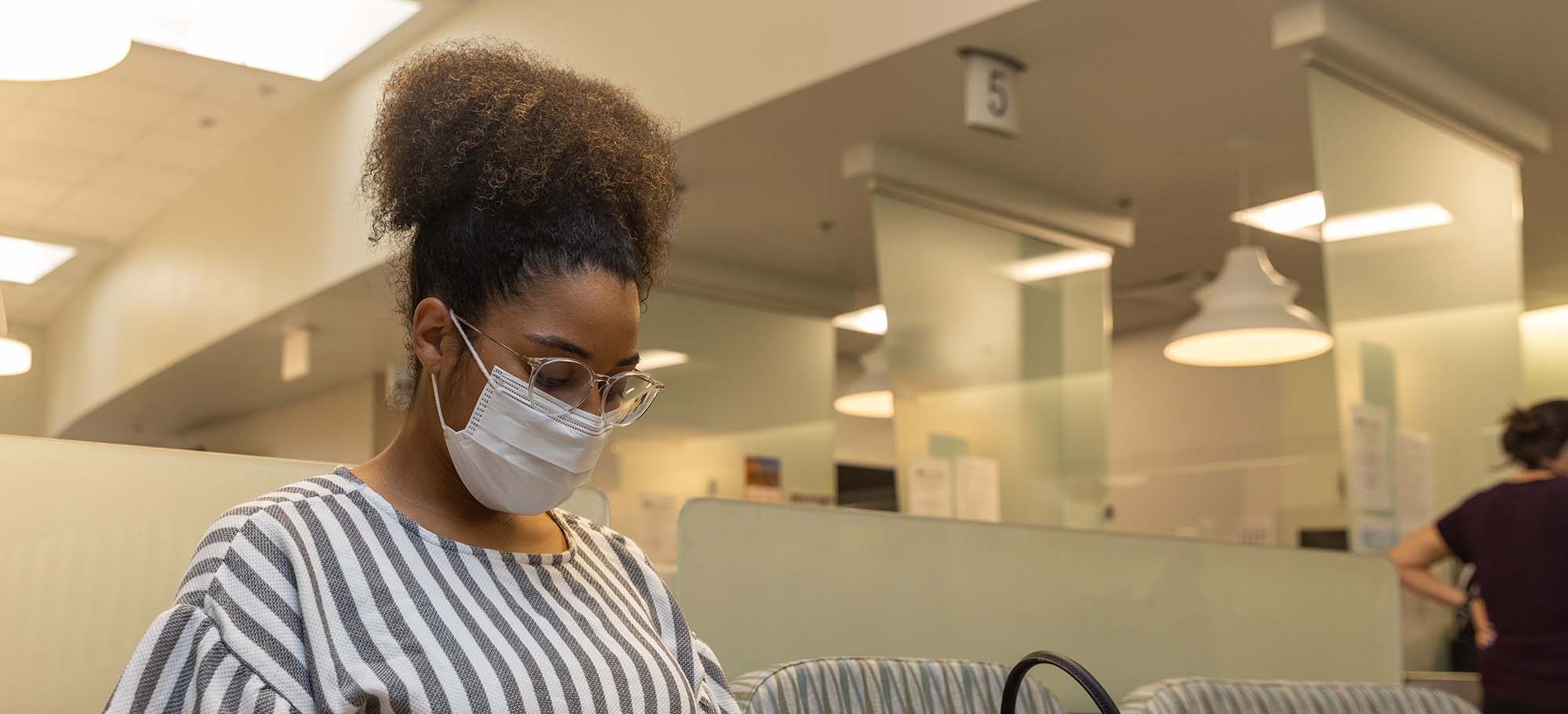Instead of a “pregnancy glow,” many women experience acne-driven redness or inflammation while pregnant. Even a few unexpected pimples can create additional stress when you’re already feeing anxious about body changes that occur during pregnancy.
Acne during any stage of life can be frustrating and confusing. Pregnancy hormones can make these emotions more intense. And while wearing a face mask is important for good health during the pandemic, it can cause a few extra zits.
You can’t control how pregnancy will affect your skin, but safe acne treatments are available. Let’s discuss how to tackle complexion concerns so you can focus on having a healthy pregnancy.
1. What Causes Acne During Pregnancy?
Over 40% of pregnant patients get acne. It’s more common in women who had acne before pregnancy, but it can develop in any pregnant patient.
Acne occurs when skin pores become clogged with bacteria, oil, or dead skin cells. Age, genetics, lifestyle, and physical conditions such as pregnancy affect how much of these skin irritants your body makes.
During the first two trimesters of pregnancy, you produce more reproductive hormones called androgens—progesterone, in particular. When these hormone levels increase, so does the amount of oil your skin produces. And more oil means more clogged pores.
Pimples are likely to show up on your face, neck, chest, or back. And we’re not talking about small whiteheads.
During pregnancy, you’re likely to see nodular acne. These zits run deep and are usually red and painful. They look like small bumps under your skin. The inflammation can cause dark spots or scarring on the skin’s surface, but some treatments can prevent this damage.
2. What Acne Treatments Are Safe During Pregnancy?
Your first line of defense against pregnancy acne is a mild cleanser free of scent and dyes. Use it twice a day for a week or two.
If you don’t see results, you can try an over-the-counter (OTC) medication. The American College of Obstetricians and Gynecologists (ACOG) recommends products containing one of the following ingredients:
- Azelaic acid, which can help fade discoloration caused by acne
- Glycolic acid, which loosens dead skin cells and can also help fade discoloration
- Topical benzoyl peroxide, an antimicrobial that destroys bacteria under the skin and clears excess oil and dead skin cells on the skin’s surface
- Topical salicylic acid, an ingredient that unclogs pores
Some prescription medications are also safe to use, including oral erythromycin, cephalexin, or prednisolone; these tend to work best when combined with topical benzoyl peroxide.
ACOG says these four acne medications are not safe to use during pregnancy:
- Hormonal therapy, which can increase the risk of birth defects
- Isotretinoin, a form of vitamin A that can cause severe birth defects
- Oral tetracycline, an antibiotic that can affect your baby’s teeth and bones
- Topical retinoids, which are similar to isotretinoin and can be found in both OTC and prescription medications
Trying too many treatments can make your acne worse. Talk with a dermatologist—a doctor who specializes in skin care—about the best options for you. The dermatologist may recommend advanced treatments to reduce inflammation, such as intralesional steroid injections or laser therapy.
Your skin should start to clear up in the third trimester or after delivery. However, some women have acne for a few weeks after delivery, as hormones are still fluctuating. For postpartum acne, follow the same treatment guidelines. If you’re breastfeeding, check in with your doctor or dermatologist to ensure your medication is safe to continue.
3. Can I Prevent Acne While Pregnant?
As irritating as hormone changes can be, they help your baby grow. You can’t stop hormone changes from affecting your skin, but a few tips can make acne less severe:
- Don’t touch or pick at acne-prone skin. I know it’s tempting, but the oils on your fingers combined with the friction of squeezing your skin can make the acne worse.
- Use gentle cleansers—and pressure—when washing your face. The more chemicals a product has, the more likely it is to irritate your skin. And scrubbing too hard can cause breakouts and blotchiness.
- Apply lotions, makeup, and hair products made with water, not oil. Water-based products create fewer opportunities for oil to build up on your face.
- Eat plenty of low-glycemic foods, which have been linked to a reduction in acne. These include fruits, vegetables, beans, and whole grains.
- Practice good hygiene when wearing a face mask. Wear little to no makeup beneath the mask and apply moisturizer before and after wearing it. Wash reusable masks after every use. And wear a mask that fits—if it’s too tight or too big, it can rub and irritate your skin.
Take Care of Your Mental Health, Too
Acne in adult women—pregnant or not—can trigger depression, anxiety, and social isolation. Many patients say their acne concerns affect their social, professional, and personal lives.
There’s no shame in acne—or in feeling self-conscious about it. If the emotional side effects of acne start to feel overwhelming, talk with your doctor so they can get you the help you need. The better you feel mentally, the better equipped you’ll be to handle the changes of pregnancy, month by month, and the excitement it can bring.

